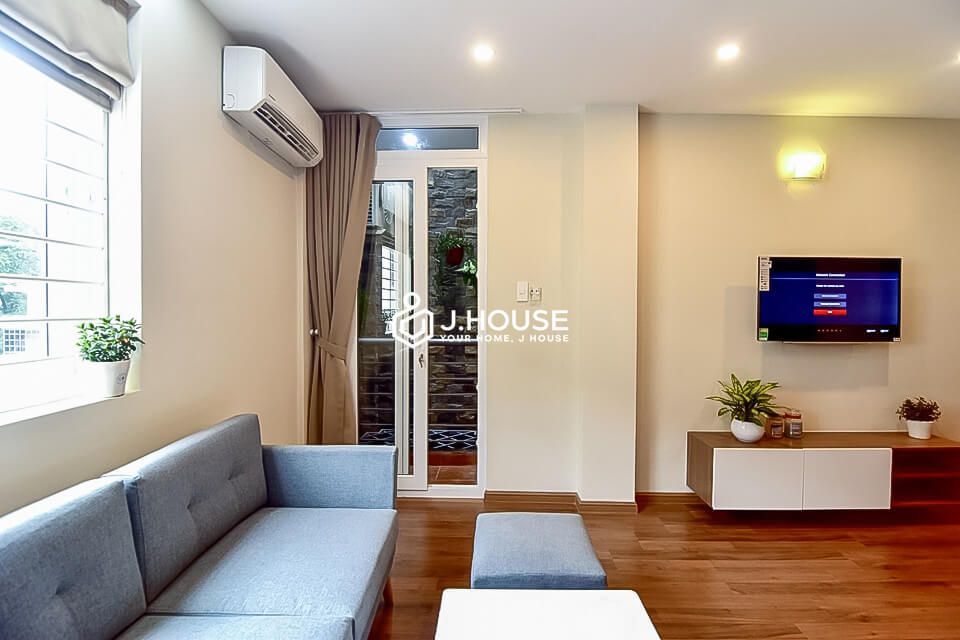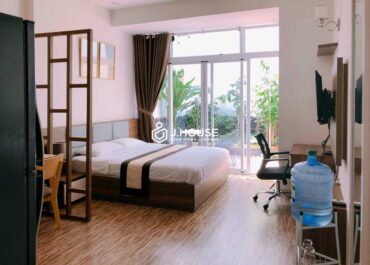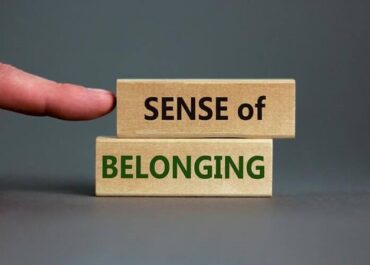Latest Properties
Lease Renewal in Vietnam: Procedures & Negotiation Tips
How to Renew a Lease in Vietnam: Step-by-Step Guide for Expats
Lease renewal in Vietnam is more than just extending your lease — it’s about securing your comfort, protecting your rights, and keeping your budget in check. As your rental contract nears its end, you’ll likely wonder: Will the rent increase? Should I negotiate? Is it time to move or stay?

In Vietnam, where communication styles and rental expectations differ from the West, renewing a lease requires more than a quick conversation. It takes local understanding, careful timing, and the right negotiation strategy.
This guide will walk you through every step of the lease renewal process in Vietnam — from preparation to paperwork — so you can renew confidently, negotiate wisely, and continue enjoying a home that truly fits your life here.
1. Understanding Lease Renewal in Vietnam
Renewing your lease in Vietnam may sound straightforward — both tenant and landlord agree to continue under shared terms. Yet, in practice, lease renewal in Vietnam can involve more steps than expected.
Most rental agreements last 6–12 months and include a renewal clause. For long-term expats, this yearly moment is a smart time to reassess your rent, living comfort, and relationship with your landlord.
Key reminders:
- Begin renewal talks 30–45 days before your lease expires.
- Confirm whether it’s a full contract rewrite or a short addendum.
- Put every updated term — rent, deposit, maintenance, or notice period — in writing.
Note: Even with a friendly landlord, rely on written agreements. Clear terms protect both sides and prevent misunderstandings later.
Read more: Tenant Rights vs. Landlord Rights in Vietnam
2. The Lease Renewal Process: Step by Step
If you’re wondering how to renew your apartment lease in Vietnam, here’s a clear, proven process to follow.
Step 1: Review Your Current Lease
Before contacting your landlord, review your existing contract carefully. Pay attention to:
- Renewal clauses and rent adjustment terms
- Deposit and maintenance responsibilities
- The required lease renewal notice period (usually 30 days)

Knowing your rights and obligations helps you approach lease renewal in Vietnam with confidence and clarity.
Step 2: Decide Your Priorities
Ask yourself:
- Do you want to stay long-term?
- Are you okay with a potential rent increase?
- Are there issues (repairs, noise, management) that need resolving first?
If your home still fits your lifestyle and the rent remains fair, renewal can save you time, stress, and relocation costs.
Step 3: Communicate Early and Politely
In Vietnam, communication matters as much as timing. Send a brief, friendly message such as:
“Hi [Landlord Name], my lease will expire on [date]. I’d love to discuss renewal options. Can we talk soon?”
This polite approach shows respect and allows both parties time to prepare.
Step 4: Negotiate Thoughtfully
Lease negotiation in Vietnam tends to be simple but delicate. Avoid pushing too hard; instead, rely on facts — market rent, your reliability, and the value of stability.
If rent increases, ask whether improvements (like new furniture or repairs) are included. Calm, data-backed discussions usually lead to the best outcomes.
Read more: How To Negotiate Rent & Formula For Successful Negotiate Rent
Step 5: Confirm Everything in Writing
Once both sides agree, request a formal renewal or extension addendum stating:
- Updated rent and payment method
- Extension duration
- Deposit details
- Maintenance responsibilities
Have both parties sign and keep a digital copy. A written record protects you legally and keeps your rental journey smooth and worry-free.
3. Common Renewal Scenarios for Expats
Expats usually face three main lease renewal situations in Vietnam — each requiring a slightly different approach.
Scenario 1: Smooth Renewal
You love your apartment, your landlord is easygoing, and both sides agree on similar terms. The renewal is simple: sign, pay, and continue your routine with peace of mind.

Scenario 2: Rent Increase Negotiation
Vietnam’s rental prices can shift — especially in popular districts like Thao Dien, District 7, or Tay Ho. If your landlord suggests a 5–10% rent increase, stay calm and negotiate with facts. Politely mention local listings or market data to support your offer:
“I’ve really enjoyed living here and hope to renew. Similar homes in this area are around [price]. Could we consider [your offer] for the next term?”
Most landlords appreciate open, respectful discussions — especially with long-term tenants.
Scenario 3: Renewal vs. Relocation
Sometimes, rising rent or maintenance issues mean it’s time to move on. Use the lease renewal notice period wisely to plan ahead and explore verified listings through trusted platforms like JHouse.
No matter which scenario you’re in, clear communication and preparation will always set the tone for a smooth lease renewal in Vietnam.
4. How to Negotiate Rent During Lease Renewal
Negotiating your rent during lease renewal in Vietnam can feel tricky — not just because of money, but because of cultural nuances. Still, with the right approach, you can reach a fair deal and maintain a good relationship.
- Know the market: Research current rates for similar homes in your area. Property sites and expat Facebook groups are great for benchmarking a realistic price.
- Show your value: Remind your landlord of your reliability — paying on time, caring for the unit, and staying long-term often earn goodwill.
- Trade smart: If a rent increase is unavoidable, request something in return — furniture updates, repairs, or extra notice time.
- Stay polite: Courtesy matters. Calm, respectful discussion builds trust faster than pressure or frustration.
Phrase to try:
“I understand if there are new costs this year. I really enjoy living here and hope we can agree on something fair for both sides.”
Successful negotiation isn’t about winning — it’s about creating stability and mutual respect, the heart of every smooth lease renewal in Vietnam.
Read more: Understanding Taxes & Fees When Renting in Vietnam as a Foreigner
5. What to Discuss Before Extending a Lease
Before you extend a lease in Vietnam, take a few minutes to review small but important details with your landlord. These clarifications can prevent misunderstandings later — especially when it’s time to move out or renew again next year.
| Topic | Why It Matters |
| Deposit | Ask if your current deposit will carry over or if a new one is required. Some landlords prefer a fresh contract with a new deposit. |
| Maintenance | Clarify who handles minor repairs and appliance replacements — responsibilities can differ between landlords. |
| Rent Payment | Confirm payment method (bank transfer or cash) and the exact due date to avoid late fees. |
| Notice Period | 30 days is common in Vietnam, but check if either side needs longer notice for early termination. |
| Furnishings | Note any furniture changes or upgrades agreed during negotiation. |

These points might seem minor, but setting them straight helps keep your lease renewal in Vietnam smooth and stress-free.
6. Tenant Rights During Lease Renewal
Understanding your tenant rights in Vietnam helps you handle contract renewal with confidence and fairness. While local practices may differ slightly, the Civil Code and Housing Law provide clear protection for both tenants and landlords.
As a tenant, you’re entitled to:
- Advance notice of any rent increase before your renewal date.
- Return of your security deposit — minus any pre-agreed deductions for damages or unpaid bills.
- A written, signed contract outlining updated terms and duration.
- The option to negotiate, or decline renewal, as long as proper notice is given.
Landlords, in turn, have the right to:
- Adjust rent based on market trends (within reasonable limits).
- End or renew a lease legally once the contract expires.
- Request that your deposit remain for continued tenancy.
In practice, most expats find that clear communication and mutual respect solve potential issues long before legal action is ever needed.
7. Renewal Addendum vs. New Contract: Which Is Better?
When it’s time to extend your stay, you can renew your lease in Vietnam in two ways — depending on how many terms change.
Option 1: Renewal Addendum
A short lease extension document that keeps your existing rental contract valid with minimal edits. It’s quick, cost-effective, and ideal when only the lease duration changes.
Option 2: New Contract
A full rewrite that updates all terms — rent, duration, or added responsibilities like parking or maintenance fees. It’s best if your situation or landlord policies have evolved.
Tip: If your landlord manages multiple units or works through an agency, a new contract is often standard for proper legal and tax documentation.
Choosing the right format saves time — and keeps your rental paperwork clear, compliant, and stress-free.
8. Avoiding Common Renewal Mistakes
Even experienced expats sometimes slip up during the lease renewal process in Vietnam. Staying aware of these pitfalls can save time, money, and stress. Here’s what to avoid:
- Waiting too long to discuss renewal — Start early so you can negotiate calmly and explore alternatives if needed.
- Ignoring market trends — Check nearby listings to understand rent shifts; data gives you leverage in rental negotiation.

- Relying on verbal promises — Always confirm agreements in writing to protect both tenant and landlord.
- Skipping the apartment inspection — A quick walk-through helps spot minor issues before they become major ones.
- Assuming no room for discussion — Many Vietnamese landlords value respectful, well-prepared conversations.
A little preparation and clear communication go a long way in keeping your lease renewal smooth, transparent, and stress-free.
9. When Renewal Isn’t the Right Choice
Sometimes, moving out is the smarter decision — and that’s completely fine. If rent spikes beyond your budget, maintenance issues keep returning, or your lifestyle needs have changed, it may be time to explore rental relocation in Vietnam.
Platforms like JHouse make this transition easier by connecting expats with verified landlords, transparent rental contracts, and honest listings — so your next move feels secure, not stressful.
“Renewal should bring peace of mind, not pressure. When the home no longer fits, finding a new one can be your best fresh start.”
Read more: Moving Between Districts in HCMC: Process, Costs & Smart Tips
10. Smart Tips for Long-Term Lease Success in Vietnam
Good communication and organization are what keep long-term rentals in Vietnam running smoothly. Here are a few simple habits that make a big difference:
- Keep digital copies of every lease, receipt, and message — they’re your best backup for any future issue.
- Discuss renewals in writing with clear, timestamped messages to avoid misunderstandings.
- Respect property rules and neighbors — a good reputation builds trust with your landlord.

- Maintain your home well — a clean, functional apartment strengthens your rental negotiation
- Consider multi-year renewals if you plan to stay longer; many landlords reward stability with fixed rent.
Small, consistent habits like these help transform a simple apartment into a long-term home you truly enjoy.
Read more: Apartment Rental in Vietnam: Legal & Financial Guide for Expats
Final Thoughts: Renewal as a Fresh Start
Lease renewal in Vietnam is more than paperwork — it’s a moment to reflect on your growth, your comfort, and your next step in this vibrant country. Handled thoughtfully, renewal builds trust, saves money, and keeps your home feeling truly yours. Handled carelessly, it can invite stress, misunderstandings, or unnecessary expenses.
So approach it like a professional expat: informed, proactive, and calm. Re-signing your lease isn’t the end of something — it’s the start of another year of stability, belonging, and everyday comfort in Vietnam.
At JHouse, we believe your home should evolve with you. Whether you’re renewing, relocating, or simply exploring your next option, we’re here to make the process seamless — connecting you with trusted landlords, transparent terms, and peace of mind.
Stay longer. Live better. Let every renewal be your next step forward in Vietnam.
JHouse Content Team
The in-depth content development team on housing services for foreigners & Vietnamese in Vietnam. The content is simple, easy to understand, and logically arranged to bring readers useful topics and information from real experiences.





















